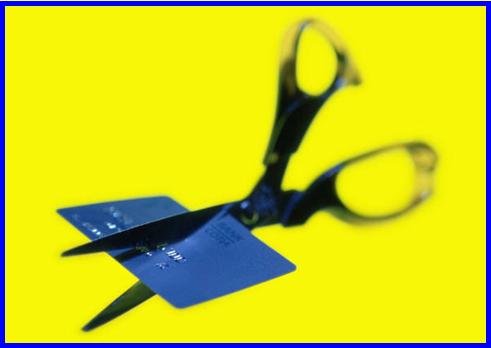 There are many false assumptions when it comes to credit scores. Here are five credit score myths that you should understand:
There are many false assumptions when it comes to credit scores. Here are five credit score myths that you should understand:
Myth #1: A low credit score means I will not get credit.
This is not true in all situations. Whether or not a lender will extend credit to you depends on a number of factors:
Your score is important, but they also look at:
- Income
- Total Amount of Debt
- Type of Debts
- Payment history
Based on the lenders underwriting policy, they may or may not extend credit or they may offer you credit at an extremely high interest rate (Pay Day Loans, Finance Companies, etc.)
Many times, a person has a reasonably high credit score, but may not be extended credit because of the factors above.
Myth #2: A poor score will stay with me for a long time.
Not if your take the proper steps to improve your credit score.
A credit score is really just a picture of your risk at a point in time. If you have had a financial problem in the past, had late or missed payments, then you score will have declined.
However, as you "get back on track" and or pay off or settle debt, your credit score will improve.
Myth #3: Credit Bureaus are unfair to minorities.
This myth is not true at all! Your race, religion, sex and many other things are not part of the credit score process.
Myth #4: My credit score will go down if I apply for new credit.
This has always been a myth about credit scores to most people.
Don't apply for several credit cards in a short time frame. Making many requests for new credit will show as "inquiries" on your report.
So the next time your checking out and the clerk asks if you'd like to save an extra 15% today by applying for their store card...think again.
However, if you are shopping for a new car and visit several dealerships, they each may request a credit report on you but this is interpreted by the bureaus as basically a single inquiry and will not hurt your score.
Myth #5: Closing or canceling a credit card or account will improve your credit score.
Although not having access to "easy credit" may help you not abuse your available credit, as far as the credit reporting agencies are concerned, you may hurt your credit score by closing accounts.
Why?
The credit bureau has a term called "credit utilization ratio". Basically, this is the amount of debt you have in relation to the amount of credit you could have.
For Example:
Let's say you have 5 credit cards.
- One has a balance of $1,000 on a $2,500 limit.
- The second has a balance of $1,500 with a limit of $1,500 (maxed out).
- You have $0 balances on cards 3,4 and 5, but the total available credit limit on those is $7,500 ($2,500 each).
To the credit bureaus, you have:
- Total outstanding balances = $2,500
- Total available credit limit = $11,500
- Your credit utilization ratio is $2,500/$11,500 or 22% (not bad!)
If you decide to cancel the 3 cards that have $0 balances, your credit utilization ratio will look like this:
- Total outstanding balances = $2,500
- Total available credit limit = $4,000
- Your credit utilization ratio is not $2,500/$4,000 or 62.5%
Your credit utilization ration went from 22% to 62.5% and this will probably lower your credit score!
As you can see, there are a lot of things that are used to determine your credit score. Some thing you have control over and some you will have to work on over time. If you would like to know how you can elimnated your debt for abut HALF of what you owe with reduced monthly payments, click on the link below or give us a call at 1-877-492-4109.
photo by: rosmary



 Credit Repair... Is it really possible?
Credit Repair... Is it really possible? If you want to improve your credit score, you need to know how to remove a judgmentfrom a credit report.
If you want to improve your credit score, you need to know how to remove a judgmentfrom a credit report.
 Welcome to 2012! It is a new year, and most people are thinking about a total body makeover. That's right, it's time to start that diet and get back to the gym. But I bet your finances could use a makeover too. Now is a great time to take a close look at your financial situation, set some goals, and make positive changes to help you achieve financial fitness in the New Year!
Welcome to 2012! It is a new year, and most people are thinking about a total body makeover. That's right, it's time to start that diet and get back to the gym. But I bet your finances could use a makeover too. Now is a great time to take a close look at your financial situation, set some goals, and make positive changes to help you achieve financial fitness in the New Year!





